
Key Benefits of Artificial Intelligence For Modern Businesses
In today’s fast-paced, technology-driven world, the business environment is undergoing a profound transformation, and at the forefront of this revolution is Artificial Intelligence (AI).
As we navigate the complexities of the 21st century, AI has emerged as a driving force for innovation, efficiency, and growth across industries.
From automating routine tasks to enhancing the customer experience, AI’s impact on modern businesses is undeniable. In this article, we explore the key benefits that AI brings to the forefront, shedding light on how it is reshaping strategies, operations, and ultimately the future of businesses worldwide.
What is Artificial Intelligence?
Ever since tools like ChatGPT and Midjourney made headlines around the world, we have all become all too familiar with the terms artificial intelligence and machine learning.
But for a quick recap, let’s answer the question of what AI really is.
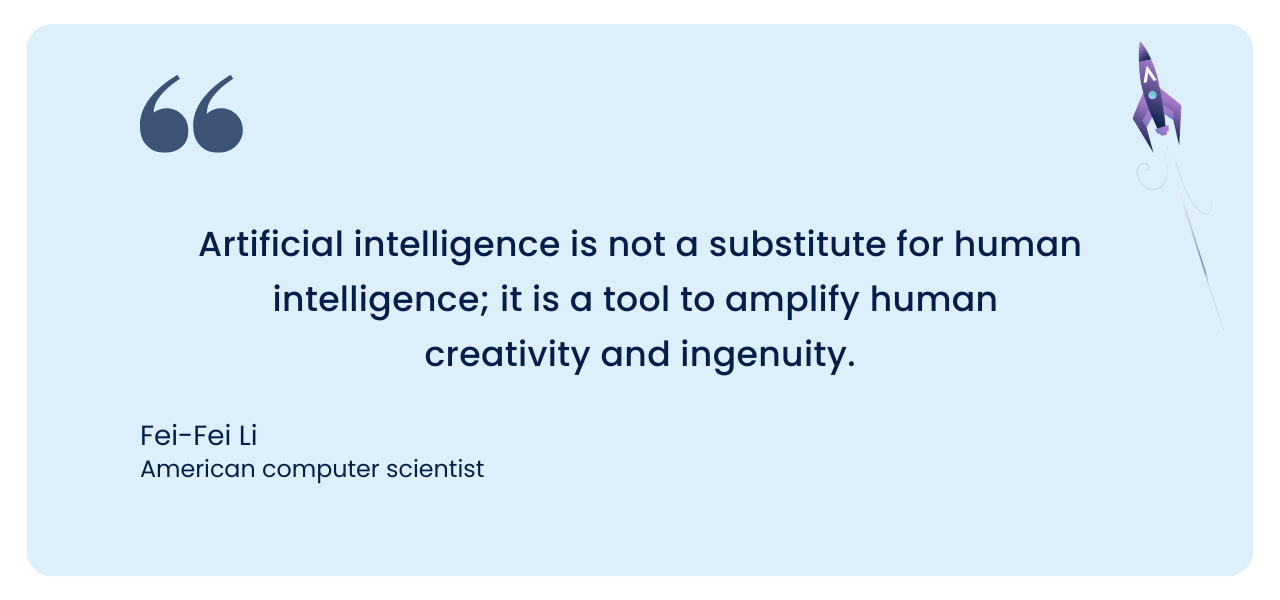
Artificial intelligence (AI) refers to the development of computer systems that can perform tasks that typically require human intelligence. These tasks include understanding natural language, recognizing patterns, solving complex problems, and making decisions. AI systems are designed to analyze data, learn from it, and adapt their behavior accordingly.
As AI systems continue to evolve, experts and researchers have created three main categories of artificial intelligence based on their scope and capabilities:
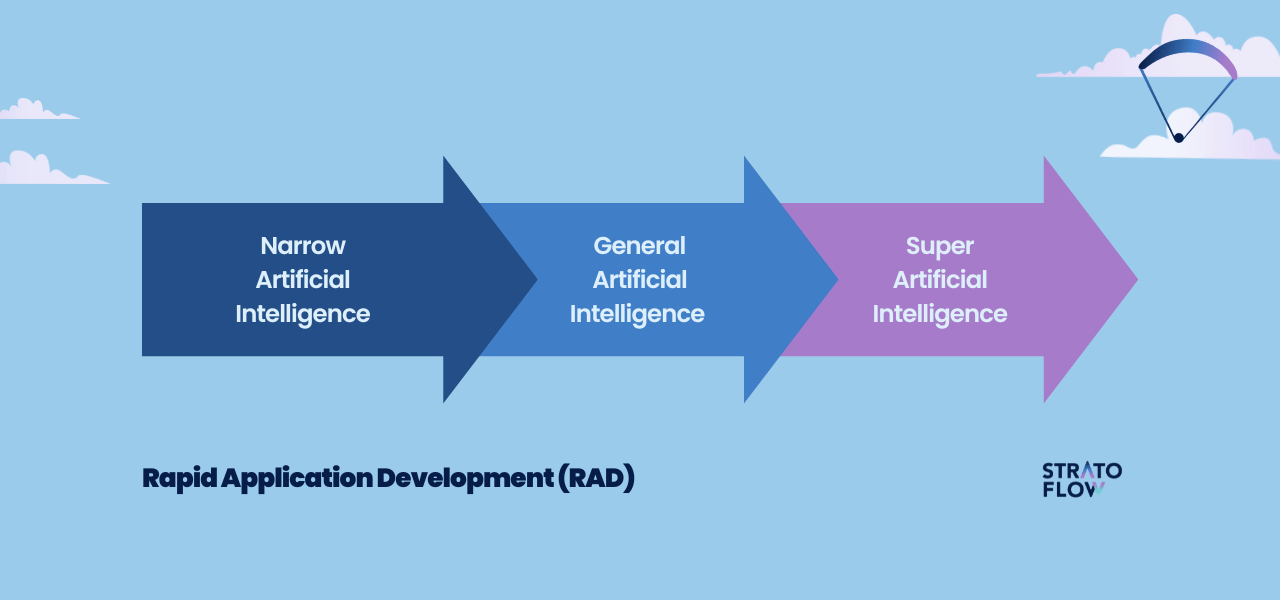
Weak or Narrow Artificial Intelligence
Weak or narrow artificial intelligence refers to AI systems that are designed and trained to perform a specific task or a narrow range of tasks.
These systems excel at performing well-defined functions, but lack the ability to generalize their knowledge beyond their designated domain. They operate within predefined parameters and are highly specialized. Weak AI lacks consciousness or true understanding, but may be capable of natural language processing and machine learning.
Examples of weak AI include virtual personal assistants such as Siri or Alexa, which can answer questions, set reminders, and execute voice commands, but only within their programmed capabilities.
Strong or General Artificial Intelligence
Strong or general artificial intelligence represents a hypothetical level of AI development in which machines exhibit human-like cognitive abilities across a wide range of tasks.
Unlike weak AI, strong AI has the ability to reason abstractly, learn from experience, and understand context. It can potentially understand and respond to any task that a human can.
Some say we may be on the verge of having strong artificial intelligence, with the next generation of GPT models likely to be released by the end of this year.
Super Artificial Intelligence
Super artificial intelligence, also known as artificial superintelligence, goes beyond strong AI to describe a level of intelligence that exceeds human capabilities in virtually every way. This level of AI would not only have cognitive abilities comparable to human intelligence, but also far exceed them in terms of speed, memory, and problem-solving ability.
It is now believed that the development of Super AI would lead to the creation of a technological singularity – a hypothetical point in time when technological growth becomes uncontrollable and irreversible, resulting in changes to human civilization on an unimaginable scale.
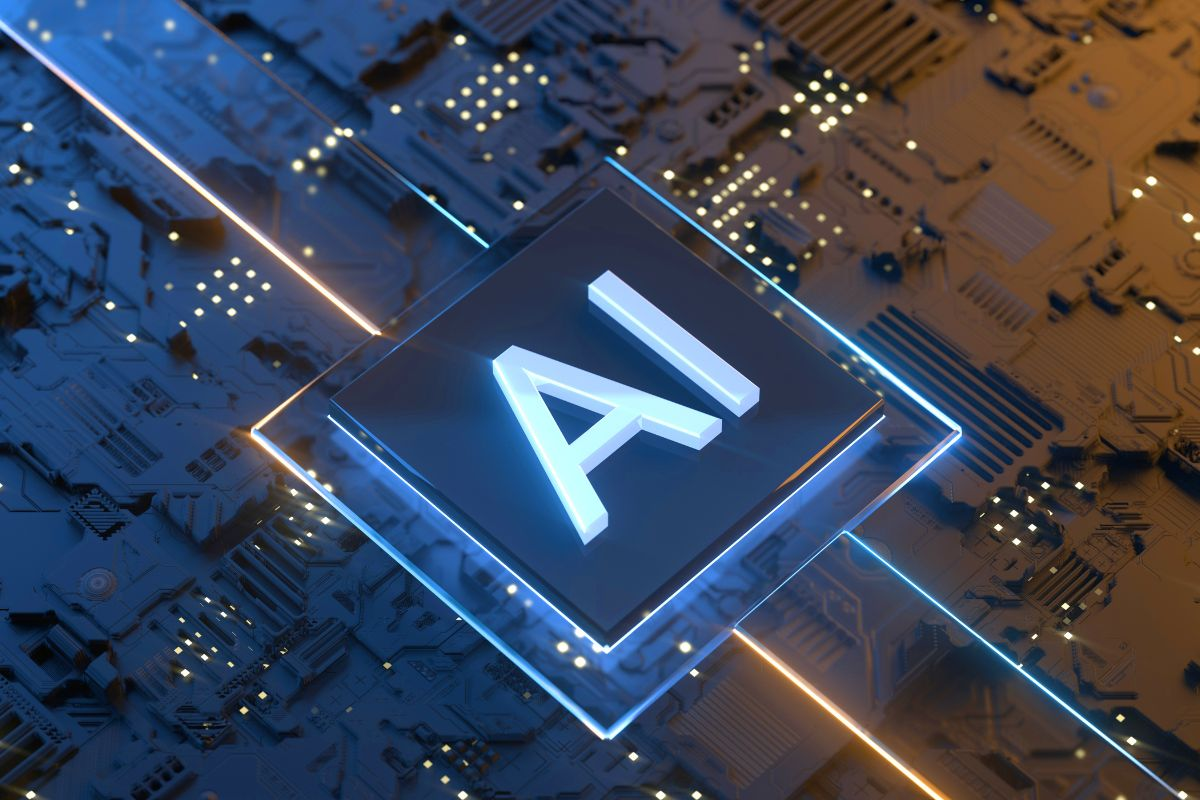
But going back to what companies are already working with, we also have to mention machine learning, because it’s a key subset of AI, which involves creating algorithms that allow computers to learn from data and make predictions or decisions based on it. You may also have heard of deep learning. This is a specific approach within machine learning itself that uses neural networks to model and process complex patterns.
Overall, AI technology as a whole has applications in various fields such as healthcare, finance, and the automotive industry, but we will see its true capabilities in action in the future, as we are still in the early stages of the AI transformation. The ultimate goal of AI research is to create systems that can exhibit human-like intelligence and reasoning, although this level of general AI is still largely theoretical and has yet to be fully achieved.
What are the benefits of artificial intelligence?
As we enter the AI age, artificial intelligence (AI) is becoming a game-changer across multiple industries, offering a wealth of benefits that streamline operations and drive growth. Here are seven key benefits that artificial intelligence solutions can bring to modern businesses:
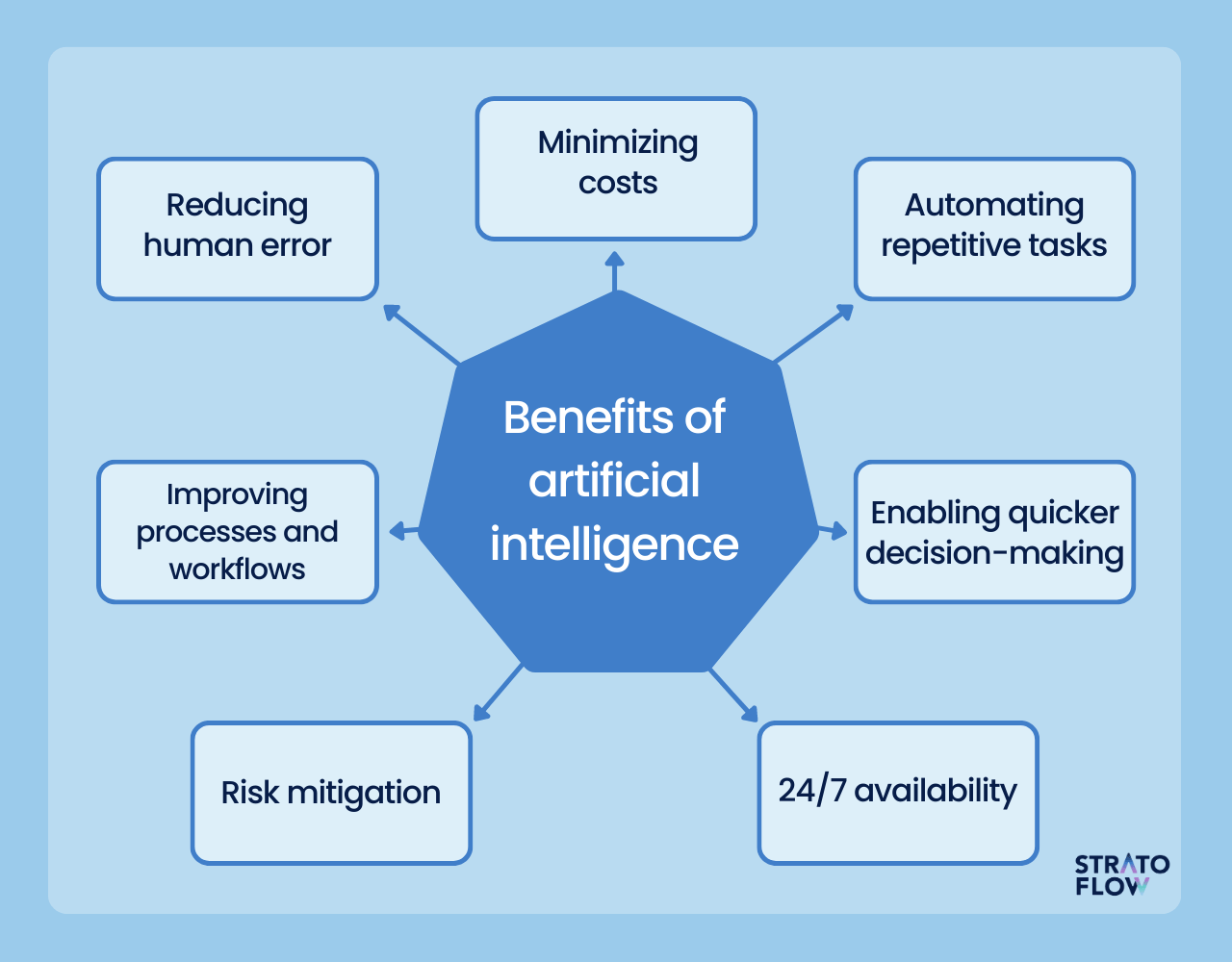
Reducing human error
First and foremost, AI excels at reducing many of the errors that an average human being can make – a critical factor in data-driven decision-making. By automating complex calculations and data analysis, AI greatly reduces the risk of manual errors and ensures more accurate insights and outcomes.
Minimizing costs
Perhaps even more importantly than reducing errors, AI can greatly decrease operating costs.
By automating tasks that would otherwise require extensive human labor, businesses can significantly reduce their expenditures. This is especially prominent in industries where there are many routine tasks that can be effectively handled by AI systems, such as finance and e-commerce, freeing up human resources for more strategic decision-making roles.
Automating repetitive tasks
Just as we mentioned in the previous post, AI excels at automating tedious tasks, which will be the first to go as artificial intelligence technology advances. This shift will enable employees to concentrate on creative and strategic initiatives that foster business innovation instead of squandering time on relatively unimportant tasks in the grand scheme of things.
Enabling quicker decision-making
AI processes large amounts of data in real-time, allowing businesses to make prompt, informed decisions. This speed is crucial in today’s rapidly changing business environment.
24/7 availability
Unlike humans, AI systems do not require rest, ensuring continuous operations and customer service. This 24/7 availability enhances customer satisfaction and responsiveness – essential elements of modern business success.
Risk mitigation
Every business brings with it a unique set of organizational risks. By analyzing historical data and patterns, AI can identify these potential risks and anomalies that may go unnoticed by humans. This proactive approach enables businesses to take preventative measures and minimize potential disruptions.
Improving processes and workflows
Last but not least, AI can optimize operational efficiency by identifying bottleneck areas, suggesting improvements, and fine-tuning processes over time. This results in smoother operations, reduced inefficiencies, and overall enhanced productivity.
[Read also: Best AI for Coding: 10 AI Tools and Assistants for Software Developers for 2024]
What are the disadvantages of artificial intelligence?
Of course, not everything is straightforward, and even the most advanced technologies may cause some problems along the way. Here are five typical challenges that modern businesses need to be cautious of when utilizing AI-based solutions:
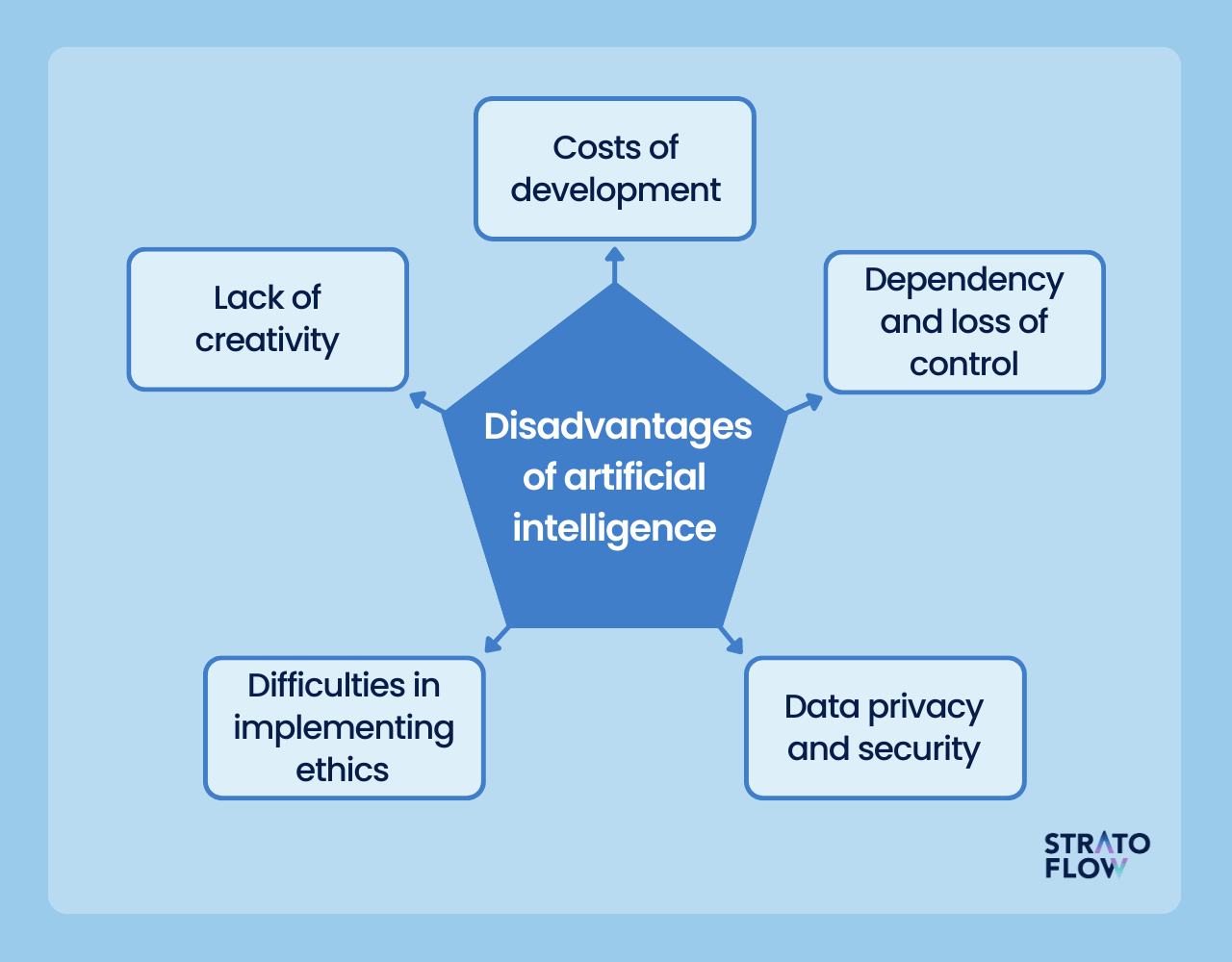
Costs of development
Artificial intelligence and machine learning solutions are gaining wider acceptance across various business sectors.
As a result, creating enterprise software based on AI requires highly skilled programmers, which often results in increased development costs. It is crucial to have adequate expertise and knowledge when developing AI-based solutions. Companies seeking to implement AI and ML solutions in their daily operations should consider seeking help from custom software development companies that specialize in developing AI-based software products.
Dependency and loss of control
As companies increasingly rely on AI for essential functions, there is a risk of over-dependence.
Dependence on AI systems without a clear understanding of their inner workings or the ability to troubleshoot them manually can result in vulnerabilities. If AI systems fail or behave unexpectedly, companies may face difficulty functioning properly, which can result in financial losses, customer dissatisfaction, or regulatory compliance issues.
Data privacy and security
The use of AI frequently involves gathering and analyzing vast amounts of sensitive data, which presents a substantial risk to data privacy and security.
Difficulties in implementing ethics
Integrating ethical considerations into AI systems can be complex, as machines lack moral judgment and can unintentionally perpetuate biases present in data. Ensuring fair and unbiased outcomes requires meticulous programming and continuous monitoring.
Lack of creativity
While AI excels in tasks driven by data and logic, it may struggle with creative tasks that require intuition, imagination, and human emotion. The potential lack of creative thinking could impede certain aspects of business innovation and problem-solving.
[Read also: Making Python 35000 Times Faster: Introduction to Mojo Programming Language]
Benefits of artificial intelligence in various industries:
From healthcare to finance, travel to IT, the application of artificial intelligence (AI) is making a profound impact on various industries, bringing forth a new phase of opportunities and progress. Let’s explore how AI influences different businesses and the true value it offers.
AI in IT
One of the areas where AI usage has surged is the IT market.
Various tools now incorporate GPT models to expedite the job of software developers. An excellent example of this AI application is GitHub Copilot. It utilizes the OpenAI model to suggest lines of code, fix bugs, and even write entire functions in real time, right from your code editor. Copilot offers code suggestions in multiple programming languages, but is particularly effective in Python, Java, JavaScript, TypeScript, C#, and C++. To achieve optimum outcomes, OpenAI LMM is trained on billions of lines of code that are available in public GitHub repositories.
Nevertheless, the impact of artificial intelligence has transcended the realm of AI software development and extended into various other fields over the recent months. Newest tools have proven us that ChatGPT can write code. Plenty software solutions tailored to different industries have emerged, all leveraging the vast potential and capabilities of AI models in some form or another, showcasing the ever-expanding influence of AI software development.
One such example is project and time management systems featuring integrated Large Language Models. These systems significantly enhance productivity for decision-makers by enabling them to interact with and collect data from their software using intuitive and simple natural language commands and prompts.
AI in Finance
Artificial Intelligence (AI) solutions have emerged as one of the key drivers revolutionizing the financial banking industry.
By leveraging AI’s advanced data processing and analysis capabilities, financial institutions can make smarter and faster decisions. AI algorithms excel at detecting patterns and anomalies in vast datasets, thus enhancing risk assessment.
In trading, predictive models driven by AI analyze real-time market data to identify trends and opportunities, resulting in optimized investment strategies that can significantly outperform the market. Banking technology leveraging AI is evaluating borrower data, enabling faster and more accurate credit decisions.
The automation capabilities of AI can streamline routine tasks like customer inquiries and account management, freeing up human resources in banking institutions for more complex tasks. Additionally, AI-powered chatbots offer instantaneous customer support, improving user experience and satisfaction.
[Read also: Your Guide to Digital Finance Transformation]

AI in Ecommerce
E-commerce is an industry in which Artificial Intelligence (AI) is currently playing the most profound role, as it has been reshaping the way companies engage with customers and optimize their operations for several years.
At the heart of this most robust AI transformation to date is the power of personalization. By harnessing AI technology, companies such as Amazon and eBay can create personalized recommendation systems that anticipate customer preferences based on their browsing and purchasing history. This tailored approach enhances user experiences, minimizes bounce rate and cart abandonment, and boosts customer satisfaction and loyalty.
AI’s data processing capabilities also enable ecommerce platforms to analyze large amounts of customer data in real-time, allowing businesses to identify trends and adapt their strategies quickly. Additionally, AI-driven chatbots and virtual assistants provide instant customer support, enhancing engagement and promptly resolving queries.
The integration of AI in e-commerce streamlines inventory management by optimizing stock levels and reducing overstocking or stockouts. AI enables businesses to deliver tailored shopping experiences, efficient operations, and improved customer interactions, ultimately driving growth in the dynamic world of online retail.
Ai in Insurance
The integration of AI in the insurance industry has significantly transformed various aspects, from underwriting and claims processing to customer service and fraud detection. AI-driven technologies enable insurers to analyze large datasets to identify patterns, predict risks, and enhance decision-making processes.
Openkoda, a notable example in the field, offers an AI-enabled insurance management software that streamlines policy administration and enhances operational efficiency for brokers and agencies. Openkoda’s platform utilizes AI to automate routine tasks, provide advanced reporting capabilities, and improve customer interactions through personalized communication and smart reminders.
Openkoda is a ready-made real estate tool available today! Do you want to see its capabilities in action?
Schedule your own free demo today!
AI in Travel
Another industry that utilizes AI’s capabilities to improve their operations like ecommerce is the travel sector.
AI’s data analysis is especially crucial in predicting trends and optimizing pricing strategies.
Have you recently booked a flight on an online website? The prices offered to you were entirely set by an AI-powered system to maximize revenue and airplane occupancy. Airlines and hotels can utilize intelligent revenue management tactics based on demand trends to increase profitability while still offering competitive pricing to customers.
Additionally, AI-powered travel management solutions with predictive analytics improve logistical efficiency, enabling airlines to optimize flight paths, crew schedules, and maintenance, resulting in on-time departures and enhanced passenger experiences.
In the hospitality industry, hotel booking engines enhanced with AI technology are able to take care of check-ins, hotel inventory management, room service, yield management, and even concierge tasks, offering an innovative experience for guests. Similarly, online travel agencies also utilize AI to simplify their back-end operations by automating administrative tasks like managing invoice processing and data entry. It also helps manage customer relationships by analyzing feedback and sentiment, enabling companies to customize their offerings to meet customer expectations.
Additionally, like in e-commerce, AI-powered chatbots in the travel industry offer real-time customer support, assisting travelers with booking inquiries, changes, and troubleshooting. This 24/7 availability enhances customer satisfaction and engagement.
AI in Healthcare
Let’s also discuss digitalization in healthcare industry as AI has diverse and noteworthy benefits in this sector.
AI’s capacity to stimulate brain functions using advanced neuroimaging techniques is transforming our comprehension of neurological disorders and brain-related conditions. This technology helps diagnose and map brain activity with unprecedented precision, leading to more focused treatments for conditions such as Alzheimer’s disease, Parkinson’s disease, and traumatic brain injuries.

AI’s impact on cancer detection and treatment is just as significant. AI-powered algorithms analyze mammograms and radiology images to detect early signs of breast cancer, resulting in faster and more accurate diagnoses. This technology aids radiologists by identifying potential abnormalities that may have been overlooked by the human eye, thereby increasing detection rates and reducing false negatives.
Furthermore, AI predictive analytics improve patient care by identifying trends in medical data, assisting healthcare professionals in making informed decisions about treatment plans and interventions. AI provides patients with personalized medical advice and reminders, promoting better adherence to treatment regimens.
AI in Marketing
Just like in the cases mentioned before, in the realm of marketing, Artificial Intelligence (AI) is also becoming a game-changer, propelling businesses to new heights of efficiency and creativity.
The introduction of AI-powered tools like ChatGPT has significantly accelerated the content creation process. These tools can rapidly generate top-notch, contextually relevant content, whether it’s blog posts, social media updates, or email marketing campaigns. By utilizing AI, marketers can save valuable time and resources, enabling them to concentrate on strategic planning and higher-level tasks that require more human ingenuity.
Additionally, AI enhances its transformative effect on graphic design through systems such as Midjourney, DALLE, and Stable Diffusion. These AI-driven platforms allow businesses to produce visually compelling graphics without the need for extensive design expertise. From creating attention-grabbing visuals for advertising to crafting compelling infographics more efficiently, AI systems simplify the design process to ensure marketing materials resonate with their audiences.
The incorporation of AI into marketing strategies goes beyond just content creation and design. AI-driven analytics dive into customer data to decipher trends and preferences that enable more accurate targeting and personalization. This promotes deeper connections between brands and customers, leading to increased engagement and conversion rates.
Additionally, AI streamlines the A/B testing process by quickly analyzing numerous variables to optimize marketing campaigns. This iterative method fine-tunes strategies in real-time, improving the efficiency of marketing endeavors.
Conclusion
In embracing the advantages of Artificial Intelligence, modern businesses are not only optimizing their present operations but also laying the foundation for the progress of future generations.
The benefits of AI are multifaceted, touching every aspect of operations, from streamlining processes to personalizing customer interactions. As businesses continue to harness the power of AI, they position themselves not just for success, but for a future where adaptability and ingenuity are key. Embracing AI is not merely a choice but a necessity to thrive in the ever-evolving landscape of today’s business world.
Related Posts
Thank you for taking the time to read our blog post!